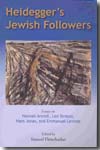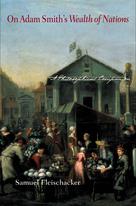Heidegger´s jewish followers
essays on Hannah Arendt, Leo Strauss, Hans Jonas, and Emmanuel Levinas
- ISBN: 9780820704142
- Editorial: Duquesne University Press
- Fecha de la edición: 2008
- Lugar de la edición: Pennsylvania. Estados Unidos de Norteamérica
- Encuadernación: Rústica
- Medidas: 23 cm
- Nº Pág.: 302
- Idiomas: Inglés

Ed., Samuel Fleischacker Given Heidegger#s eventual alliance with Nazism#which many scholars feel had its roots in his thought from its inception#it is remarkable that many of his students and followers were Jews. Much has been written on the importance of Heidegger#s philosophy and of how his decision to support the Nazis can affect how his thought is to be understood, but the question of how he influenced his Jewish students and the development of their own philosophical voices has been little examined. Heidegger#s Jewish Followers, then, addresses very important and relatively unexplored questions, namely, in what way did Heidegger#s thought affect his most prominent Jewish students, and how did they respond to this influence? By focusing on four students who certainly came to be important philosophical figures in their own right#Hannah Arendt, Leo Strauss, Hans Jonas, and Emmanuel Levinas#these essays by a wide range of scholars weave together philosophical analysis, religious tradition, and historical background. All of the thinkers highlighted here, as Samuel Fleischacker points out, identify themselves culturally and sometimes religiously with their Jewish tradition; Fleischacker speculates that these four may have been drawn to Heidegger through the uncanny affinities between Heidegger#s view of Being and the remote God of the Jewish tradition, as well as those between Heidegger#s style of and emphasis on hermeneutics and the practices of and emphasis on midrashic interpretation in the Jewish tradition. Organized in sections dealing with each of these four thinkers, these essays are creative in approach and offer many possibilities for further exploration, demonstrating that there can be no simple solution to the question of Heidegger#s influence on his Jewish students. This book should be of interest to those who read Jewish philosophy, Heideggerian philosophy, phenomenology, and those interested in the continental tradition generally.
Ed., Samuel Fleischacker







